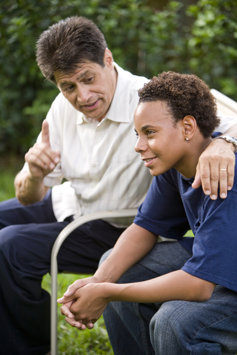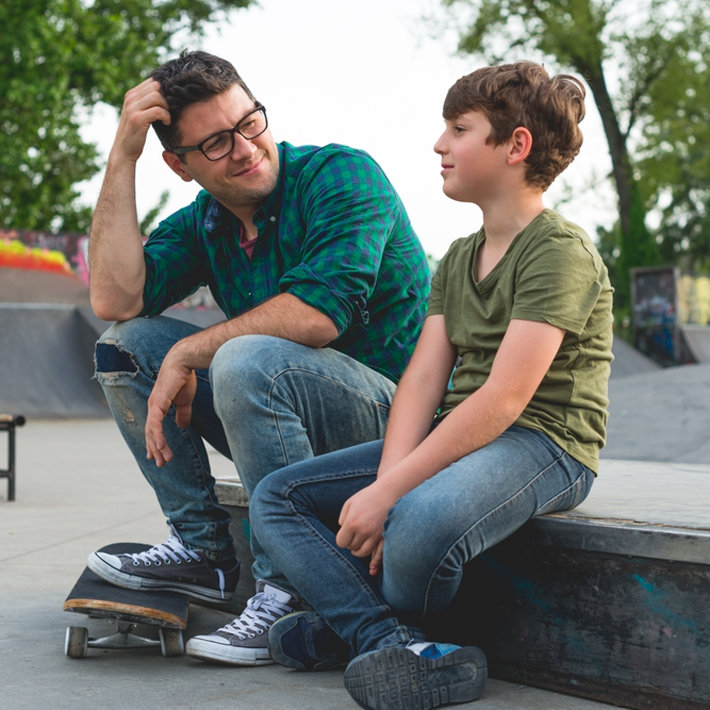How to Talk to Your Teen about Drugs

The importance of parents talking to their kids about drugs and alcohol is pretty well-known. But how do we do this? I know for a fact that plenty of experts stress the importance of having these conversations. But few say how to actually have these conversations. Granted, each conversation will be different and will depend a lot on your relationship with your kids, how you engage with them, their own personalities, and so on. But let’s explore some basic strategies, tips, and wisdom on talking to kids about drugs and alcohol. We’ll examine some evidence-based data, and we’ll look at some concepts which are just plain common sense, but maybe not well-known.
I understand that this is a conversation you might not be looking forward to. It’s sort of like having “The Talk” except this talk is on a subject matter (drugs) which can literally mean life or death for your child, no matter their age. In a day and age where drug abuse and alcohol misuse has become more common than ever before, you have to know how to talk to your kids about drugs.
Start Having Conversations When Your Kids Are Young
You want to talk to your kids about drugs and get them to understand the truth about drugs before they are faced with any peer pressure to use them. Your kids need to have the correct data about drugs and alcohol firmly fixed and well understood before they get a lot of bad data from their “friends.”
It is wise to start having educational, interactive, and engaging conversations with your kids about drugs and alcohol at a very young age. The Huffington Post interviewed Joronda Montano, a drug prevention specialist at “NotMYKid.” NotMYKid is a nonprofit that educates parents and kids on drug and alcohol abuse, as well as other troublesome difficulties that young people sometimes face.
According to Joronda, “Long before your kids face the pressures of adolescence, they should know your stance on drugs. … With younger kids—ages 8, 9 and 10— start asking them simple questions each day like, ‘What is something that you liked about today, and something you didn’t.’ You’re taking inventory when you get those answers. It makes it more comfortable to continue to have a regular conversation as they get older.”
Joronda goes on to talk about how a discussion about drugs should be “eased into,” first by creating a safe environment for discussion (like in the above scenario). The next step is asking your child if they know what drugs are and if they have had any interactions with other kids who were using them (or if they had seen/used them themselves). Then the conversation should flow freely into you giving your kids accurate data about drugs. Don't forget to encourage them to ask questions should they have them.
Start Setting Family Expectations at a Young Age
Many parents seem to forget that their kids want to please them and make them happy. Kids want the approval and appreciation of their parents. They actively seek it out. So when a child is young, and when these impulses are particularly prominent (between the ages of 8-13 but it varies child-to-child), you should be having conversations with your kids about what you expect from them when it comes to drugs and alcohol.
If kids know their parents disapprove of drug use, they’re going to be less likely to use drugs. If kids are uncertain about it or think their parents might even be okay with it, they’re more likely to experiment with drugs.
Talk to Your Kids about Peer Pressure

Most teens try drugs for the first time because they are pressured into doing so by their friends. All it takes is one teen in a group of teens with the right influence and the right suggestions to get the whole group of teens trying a drug for the first time or drinking alcohol heavily.
Teenagers need to know how to avoid peer pressure if possible, and how to defend themselves against it when they cannot prevent a peer pressure situation. You can talk to your kids about the importance and value of saying no. You can even teach them clever ways of doing this. You can agree on a code word that they can text you at any time, with the agreement that you’ll go pick them up from wherever they are, no questions asked. Another useful technique is to role-play different peer pressure situations with your teen and to coach them on ways to get out of uncomfortable situations.
Help Them Find Out Why They Don’t Want to Do Drugs
Getting your kids to understand why you don’t want them to use drugs is half the battle. Getting them to see why they don’t want to use drugs is the other half of the battle. Look for teachable moments in conversation with your child where you can guide them to the self-realization that using drugs is harmful to them, not just for you. Encourage them to think with the things that they want to accomplish in life, and guide them to their own realization of how drug use would impede their progress towards those goals.
Continue the Conversation
Last but not least, keep the conversation going with your children. Start this conversation when they’re young, and then revisit the subject matter regularly. As your kid’s age, you may need to change the style or manner of the conversation—likely to be more inclusive and informative. But odds are, the discussion will cover similar subjects:
- Education and data about the harmful effects of drugs and alcohol.
- Setting the expectation that you intend for them not to use drugs or alcohol.
- Discussions on peer pressure and how to avoid it or confront it if necessary.
- Conversations about your child’s future, and why he or she doesn’t want to use drugs.
Keep these conversations going. “Out of sight and out of mind applies here”, and if you don’t maintain this conversation as the years go by, the subject matter might become obsolete in your teen’s mind. Keep the discussion current and relevant.
Creating Safe, Drug-Free Homes
Parents worry about the health and well-being of their kids. That comes with the territory of being a parent. There’s nothing wrong with that. Just remember to be proactive and to focus on maintaining a close connection and regular conversation with your kids. If you do this, not only will your kids most likely stay away from drugs and alcohol, but you’ll foster a healthy and pleasant, lasting relationship with them as well.
Sources:
https://www.huffingtonpost.com/entry/how-to-talk-to-your-teen-about-drugs-6-tips-for-parents
Reviewed and edited by Claire Pinelli, ICAADC, CCS, LADC, RAS, MCAP


